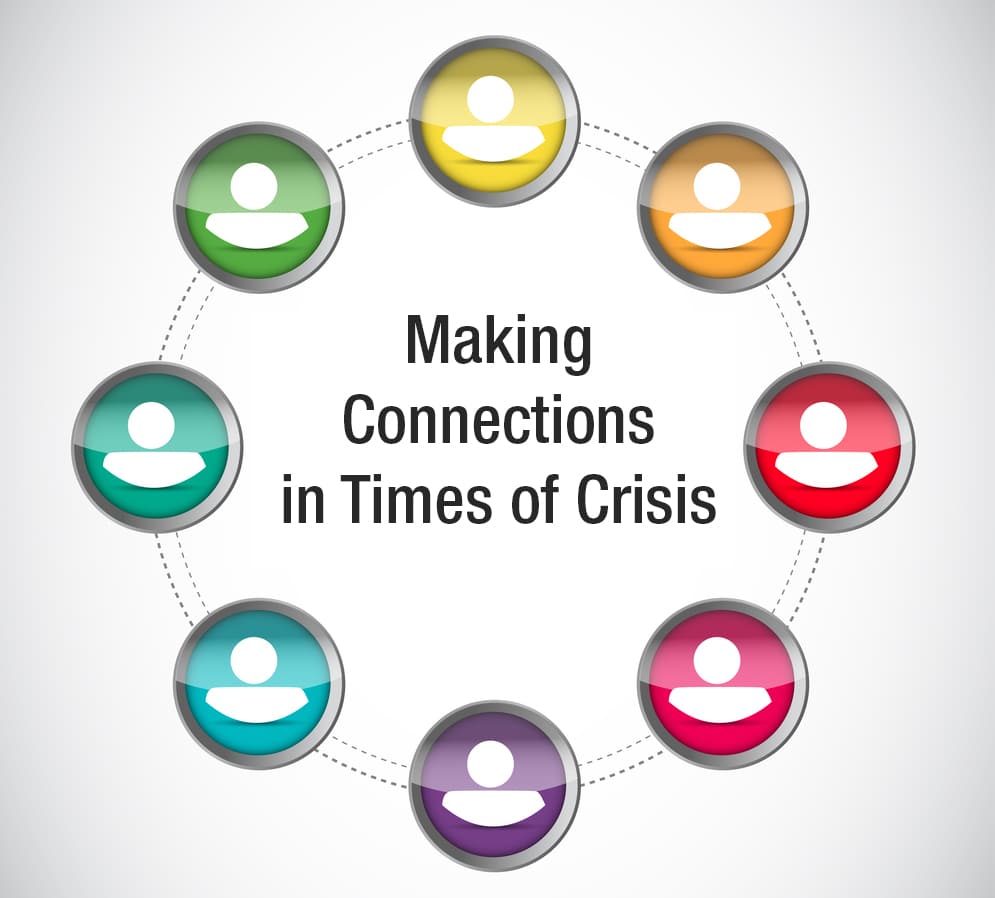Making Connections in Times of Crisis
 Our world has never experienced anything like it did in 2020. Last year, we found ourselves at a major crossroad. Amidst fighting a global pandemic, our country also experienced intense civil unrest and protests due to the killings of George Floyd, Breonna Taylor, Ahmaud Arbery, and others. We have all been deeply affected by these events, and our nation’s teachers have been thrust into a world unknown. They must not only become practical-minded, on-the-ground social justice educators but must learn how to do so effectively in an ever-changing virtual environment. Now, more than ever, we must dig deep into what we know as teacher educators and to listen, anticipate, and plan rather than reacting to barriers (both expected and unexpected) that emerge along the way.
Our world has never experienced anything like it did in 2020. Last year, we found ourselves at a major crossroad. Amidst fighting a global pandemic, our country also experienced intense civil unrest and protests due to the killings of George Floyd, Breonna Taylor, Ahmaud Arbery, and others. We have all been deeply affected by these events, and our nation’s teachers have been thrust into a world unknown. They must not only become practical-minded, on-the-ground social justice educators but must learn how to do so effectively in an ever-changing virtual environment. Now, more than ever, we must dig deep into what we know as teacher educators and to listen, anticipate, and plan rather than reacting to barriers (both expected and unexpected) that emerge along the way.
As an instructional coach at the Urban Teaching Apprenticeship Program at the University of Pennsylvania, I support and supervise teacher candidates growing in their careers and help them to leverage their learning into practice. In the absence of human face-to-face contact due to COVID-19, we must use the technology tools we have to bring new teachers in as agents of social change and learn how to help them implement what they have learned. Today’s novice teachers are not only teaching online but also learning from mentors remotely as well. In these changing contexts, we must ensure theory meets practice by bringing real-life examples of justice-oriented practice into our university-based classrooms. Novice teachers must learn how to teach virtually in socially just ways now that the normal ways for them to build relationships with their students and their own mentors are no longer available.
We need to teach our future educators how to help students reflect on what is happening in the world by working to build a sense of urgency for action and change. Last year, I personally saw many students become more knowledgeable, more aware, more active, and more reflective because of exceptional teachers and changemakers. For students of color and those who experience poverty, teacher mentors are truly building asset-based practices that help create a classroom community in ways that seemed impossible when the pandemic started.
In today’s virtual world, there are new opportunities to make connections with students that have never existed. Keziah Ridgeway, a teacher of African American history and IB anthropology at Northeast High School in Philadelphia and founding member of the Melanated Educators Collective, is an exemplar for helping students and teachers stay connected in the remote world while becoming critically conscious change agents themselves. She has been able to create a classroom where students feel like they belong, even when the only ways to connect are through little boxes on a computer screen. Her teaching combines social emotional learning strategies with restorative practice strategies where she ensures there is a check in (or a mindfulness minute) for students at the beginning of each class. This type of open interaction encourages students to share their opinions and experiences on video and in chat and creates meaningful connections, especially as students dig deep to investigate anti-Black racism and the contributions of African Americans to US History. Novice teachers (and experienced teachers, and teacher educators) can learn from her and other examples, living social justice teaching practice, online and in person.
Enabling these types of connections is critical for helping our students understand issues of racial divide and create safe spaces for them to make sense of the health crisis and social injustice. In 2021, we need to focus on preparing our social justice educators and becoming more mindful justice-oriented researchers to help rebuild our country in a way that thoughtfully tackles and undoes the issues of white supremacy, homophobia, transphobia, and other forms of oppression. As we think about what teacher education looks like in this year, we need to look at it with a set of fresh eyes, tackling and entering the year with hope and urgency rather than closing the book on 2020 and simply picking up where we left off.
We must also recognize that these larger challenges and structures are not going away because a new calendar year is starting. Preparing our nation’s teachers and social justice educators, particularly in times of crisis, requires blurring boundaries, democratizing knowledge, and rethinking hierarchies. If living through COVID-19 and the social justice movement simultaneously has taught us anything it is that we must focus on connections. Connecting teachers with students and connecting mentors with teacher candidates is a critical investment in making our education system more successful and inclusive.
Andrew J. Schiera is a senior instructional coach, Urban Teaching Apprenticeship Program, University of Pennsylvania Graduate School of Education. Schiera’s work emphasizes finding convergence between university-based teacher education and the actual practice of teaching and learning in urban schools. His research employs critical qualitative research methods and practitioner research methodologies to understand how novice teachers integrate justice and practice as emerging educators.
